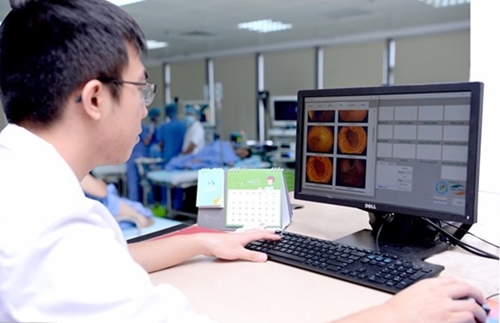March 01, 2020 | 06:48 (GMT+7)
Viettel develops IT ecosystem for health sector
PANO - The Military Industry-Telecoms Group (Viettel) has been comprehensively developing an information technology (IT) ecosystem for the health sector of Vietnam to ensure that each citizen has a smart health assistant.
The group has built people and health workers-centered health solutions to help save doctors’ time and patients’ cost for medical examination and treatment.
    |
 |
|
The health sector soon applies IT to medical examination and treatment. |
The comprehensive ecosystem has nearly 20 systems monitoring and managing people’s lifelong health and assisting people in active disease prevention and health improvement. With these systems, health officials and doctors can have access to modern technologies to better medical examinations and treatment for patients, and save time in making diagnosis and treatment for patients as well.
Taking the vaccination management system as an example, after three years of operation, the system has connected over 14,000 vaccination establishments nationwide, managing over 22 million people and helping the health sector to annually save more than VND 100 billion from printing different documents and books.
Recently, the group developed an app. on COVID-19 for the Ministry of Health. The app. helps the ministry to directly connect with 22 big hospitals and give support to 700 lower-level health establishments nationwide.
According to Nguyen Manh Ho, General Director of the Viettel Business Solutions Corporation, an affiliate of Viettel Group, the company will build a complete health ecosystem using such modern technologies as Blockchain, IoT, and BigData to link the health sector with the community in the most effective way possible. Accordingly, doctors will find it convenient to give examinations and treatment to patients while people will have their own health assistants so that they can actively take care of their health wherever they are.
In the time ahead, Viettel will apply IoT to smart devices, integrate in a non-communicable disease management system to care for the health of the elderly, screen for early detection of diseases, and remind people of complying with chronic disease treatment regimens, and promptly alert cases of hypertension or accidents and more.
Translated by Chung Anh